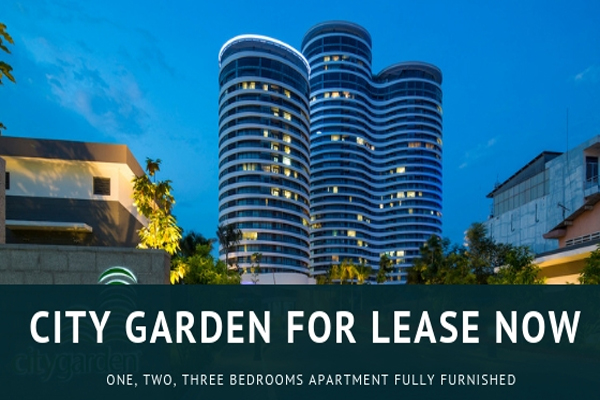Buying Property in Vietnam as a Foreigner
01 Oct, 2025

Buying property in Vietnam foreigners has become a key question for many expats considering investment or long-term residence in Ho Chi Minh City. Under the 2014 Housing Law, foreigners are allowed to purchase apartments in commercial housing projects, but with specific restrictions on ownership limits, duration, and eligible areas.
Understanding these rules is essential to avoid legal risks and to secure long-term ownership rights. This article provides an overview of the most important legal considerations every foreign buyer should know before purchasing property in Vietnam.
Can Foreigners Buy Property in Vietnam?
One of the most common questions among expats is: Can foreigners buy property in Vietnam? The answer is yes, but only under certain legal conditions.
According to the Housing Law of 2014, foreigners are allowed to purchase and own apartments in commercial housing projects, except in areas restricted for reasons of national defense and security. This marked a significant shift in Vietnam’s real estate market, opening opportunities for foreign investment and long-term residence.
However, foreign ownership is not identical to that of Vietnamese citizens. Buyers must comply with restrictions on ownership quotas, types of property, and duration of ownership, which will be explained in the following sections.

Types of Property Foreigners Can Buy
Foreigners cannot purchase all types of real estate in Vietnam. The law strictly defines what is eligible for foreign ownership to safeguard market stability and national security. The main options are:
- Condominium apartments in commercial projects: The most common and widely accessible option for foreigners, especially among expats.
- Houses within approved projects: In certain commercial developments, foreigners may buy townhouses or villas, subject to ownership quotas.
- No land ownership: Foreigners cannot own land in Vietnam. When buying a house, they own the building only, while the land remains under state ownership.
- Restricted areas: Properties in sensitive zones relating to defense and security are off-limits to foreign buyers.
Ownership Limits and Duration
Foreign buyers in Vietnam are subject to restrictions on both ownership quotas and ownership duration. These rules are central to managing the real estate market.
- Ownership quotas: Foreigners can own no more than 30% of the units in a condominium building. For landed houses in a project, ownership is capped at 10% of the total.
- Ownership duration: Apartment ownership is limited to 50 years from the date of the ownership certificate.
- Renewal of ownership: In practice, extensions may be granted if the project remains valid and the buyer still meets the conditions.
- Comparison with locals: Unlike Vietnamese citizens, foreigners do not enjoy permanent ownership but are restricted to time-limited rights.
Legal Process for Buying Property in Vietnam
The process of buying property in Ho Chi Minh City as a foreigner involves several legal steps. Following them carefully ensures a transparent and legally valid transaction.
- Verify project legality: Confirm that the project is eligible for foreign ownership and check the remaining ownership quota.
- Sign the sale contract: The contract must be in writing, notarized, and clearly state terms regarding ownership, duration, fees, and obligations.
- Make payments via bank: Buyers must pay through a Vietnamese bank account to ensure transparency and compliance.
- Register ownership: Once the contract is complete, submit documents to the authorities to obtain the ownership certificate (“pink book”).
- Apply for renewal if needed: After the 50-year term, buyers may request an extension in accordance with Vietnamese law.
Costs and Fees to Consider
Beyond the purchase price, foreigners should be aware of additional costs and fees associated with property transactions and ownership in Ho Chi Minh City. The most common include:
- Registration tax (stamp duty): Around 0.5% of the apartment’s value, payable upon ownership registration.
- Notarization fees: Based on the contract value, ranging from a few million to several dozen million VND.
- Condominium management fees: Monthly payments to the building management, typically 10,000–20,000 VND per square meter.
- Maintenance fund: A one-time payment to the developer upon handover, usually 2% of the contract value.
- Additional service costs: Such as property insurance, utilities, or professional property management services.
Common Risks and How to Avoid Them
While buying property in Vietnam offers attractive opportunities, foreigners may encounter legal risks. Recognizing them early helps reduce disputes and secure ownership.
- Exceeding foreign ownership quotas: If a project has already sold 30% of its apartments to foreigners, the purchase may not be valid. Buyers should verify quotas with developers or authorities.
- Unclear contracts: Some contracts lack details on ownership rights or financial obligations. Always require notarization and seek legal advice before signing.
- Delays in ownership certificates (“pink book”): Developer delays may affect buyer rights. Contracts should specify clear deadlines for issuance.
- Risks in resale apartments: Units under mortgage or dispute can create serious complications. Buyers must carefully check legal records before making deposits.
Why Work with VnRenthome?
Ho Chi Minh City’s property market is dynamic but can be legally challenging for foreigners. That’s why VnRenthome is your trusted partner, ensuring safety and transparency throughout the process.
- Verified property listings: All apartments and projects are inspected with accurate and reliable details.
- Bilingual legal support: Contracts, consultations, and procedures are available in both Vietnamese and English for peace of mind.
- Comprehensive property management: Covering asset management, maintenance, and issue resolution for both landlords and tenants.
- Understanding expat needs: Our team knows international lifestyle requirements, from location and amenities to tailored services.
- Professional advisory team: Assisting clients every step of the way—from property search and legal checks to contract signing and handover.
Conclusion
Buying property in Ho Chi Minh City as a foreigner is possible, but it requires strict compliance with regulations on eligible property types, ownership quotas, and duration. Proper legal preparation ensures a transparent and secure transaction with lasting value.
With VnRenthome as your partner, international clients receive end-to-end support—from property search and legal verification to contract signing and asset management. This is the reliable solution for foreigners looking to invest or settle in Vietnam with peace of mind.
Contact us today for personalized consultation

